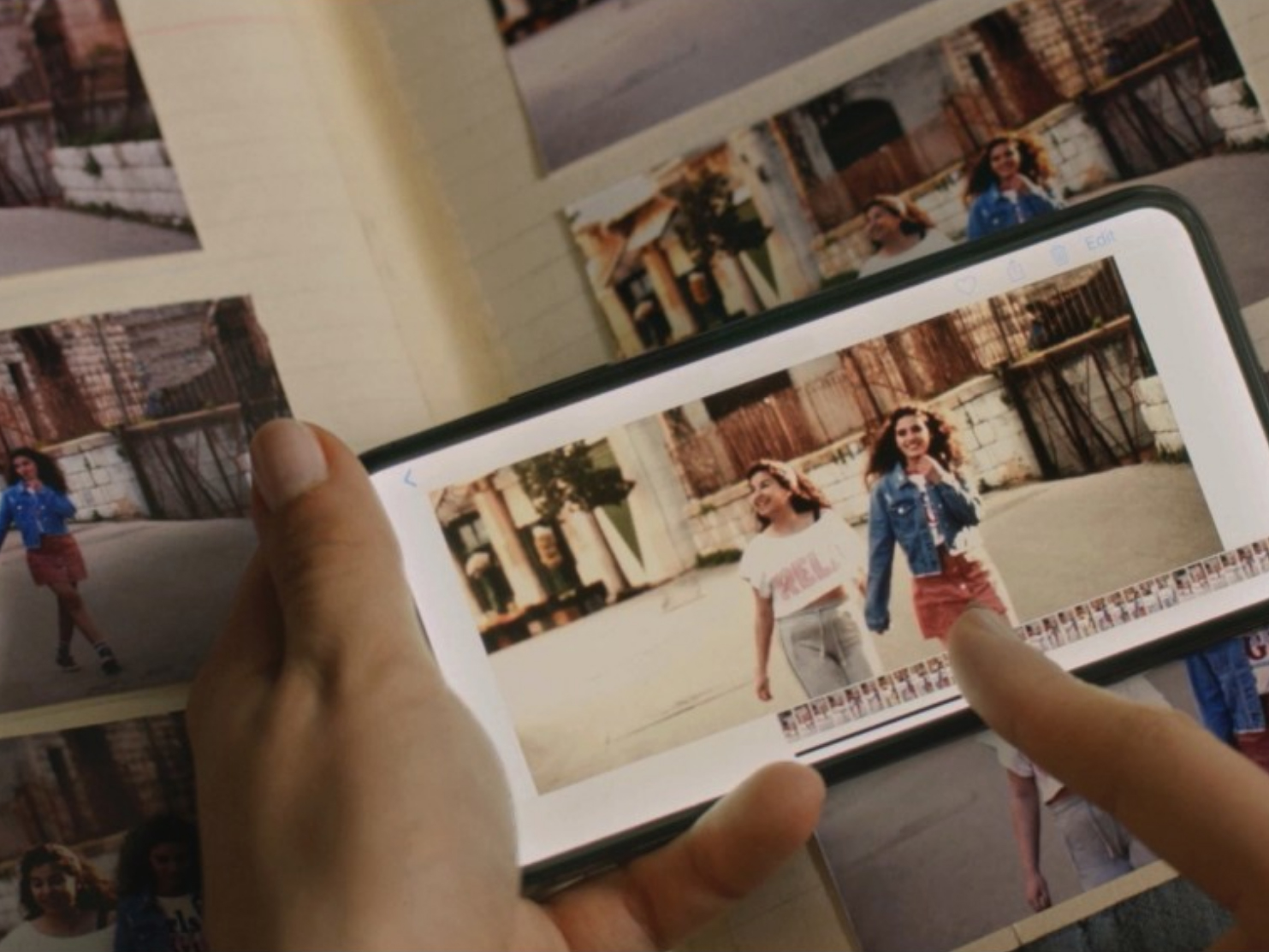
- Golden Globe Awards
Memory Box (Lebanon)
Joana Hadjithomas and Khalil Joreige, a married couple who are both filmmakers, have collaborated since the early 1990s on videos, films, photographs, and art installations.
Both born in Beirut in 1969, they spent their childhood there during the Lebanese civil war. They both studied literature at the University Paris Nanterre and film in New York.
Their latest feature film, Memory Box, is based on Hadjithomas’ notebooks and tapes made in Beirut as a teenager during the Lebanese civil war in the 1980s.
Memory Box tells the tale of three women who are connected by a box, containing notebooks, photographs, and audiotapes, that resurfaces.
It starts in the present day in Montreal when teenager Alex (Paloma Vauthier), who lives with her mother Maia (Rim Turki) and grandmother Teta (Clemence Sabbagh), receives a huge box of memorabilia that Maia sent from Beirut to her friend Liza in Paris while the Lebanese civil war was raging.
Conflict arises between mother and daughter when Maia refuses to explain to Alex the real significance of the contents of the box which bring back painful memories and long submerged secrets.
In an email interview with the co-directors, they revealed what challenged them the most about filming Memory Box.
Hadjithomas said, “Memory Box is a film based on notebooks that I wrote to my best friend in the 80s during the Lebanese civil war. She had to leave the country and we promised to write every day. And we wrote to each other every day for six years, recorded tapes, sent hundreds of pictures.
“Then we lost sight of each other and met up again 25 years later, when she gave me back all this correspondence. These notebooks that we wrote and these tapes that we recorded to each other, we had to transpose them, use them in a totally fictional film. That was the first challenge, that of the script.
“The second challenge was to add a visual dimension based on photographs that Khalil had made during that same period in Beirut. Each of us had expressed himself in his medium and it seemed important to us to dialogue in this way. We combined our two archives, our stories.
“Another challenge was to create scenes born from the imagination of a young person of today who knows nothing about Lebanon, the war or the 1980s.
“Finally, there is another, deeper challenge: we were making this film to talk about transmission between different generations, to share our experiences and our stories.
“The biggest challenge was to rethink the film because of the terrible economic crisis that Lebanon is experiencing today, and the explosion of August 4 that destroyed a third of the city in a few seconds. Our great challenge was to capture this sadness and despair while ending the film with hope. With the need to continue. As the closing song says, that ‘There will be light.’”
Asked what they hoped the audiences would get after watching the film, Joreige and Hadjithomas replied, “This film was written for three generations: our parents’, ours and our children’s. We hope this story will touch all of them.
“We also hope that its artistic cinematographic language will conquer, and show cinema can be close to art and still be accessible.”